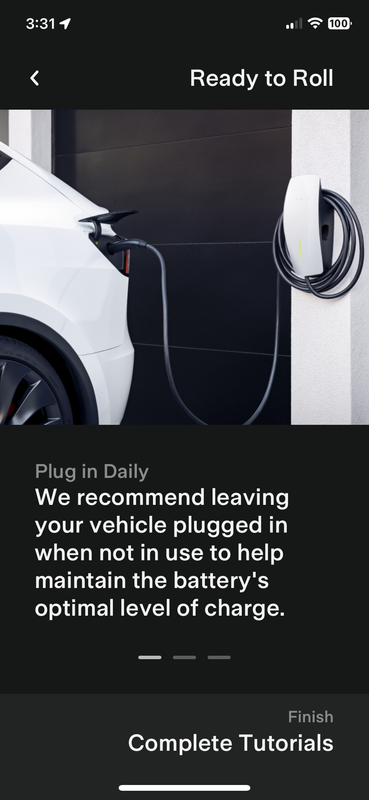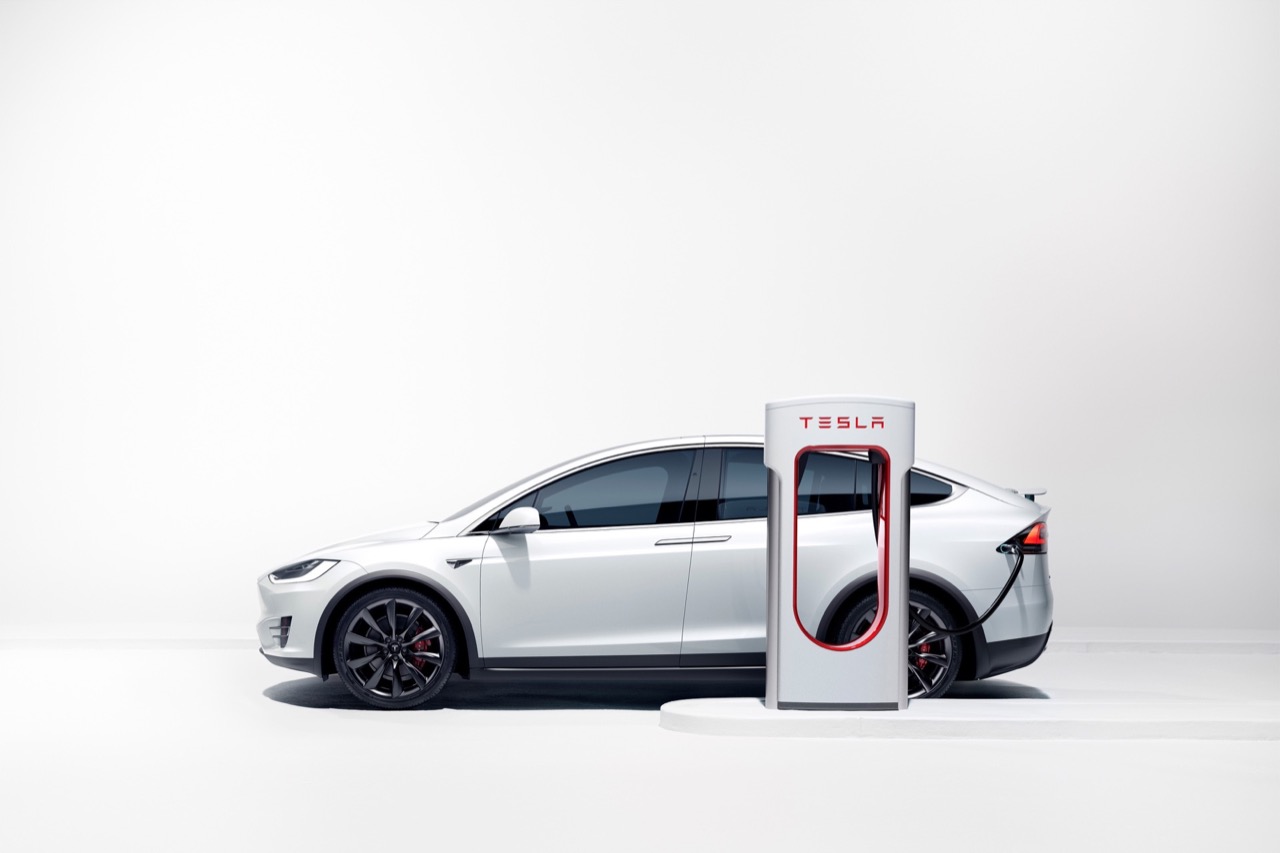Just came across this article and the study it mentions. This should be comforting to those that supercharge a lot.
Results show no significant acceleration of range degradation for those who fast-charge 90% of the time versus those fast-charging less than 10% of the time, according to Recurrent.

www.greencarreports.com
"DC fast charging makes EV road trips practical, but owners are cautioned that frequent fast-charging can also cause battery degradation. That isn't necessarily the case,
a new study has found.
Recurrent, which produces battery health reports for used EVs, studied fast charging on over 12,500 Tesla vehicles in the U.S. Cars that were fast-charged at least 90% of the time were compared to cars that were fast-charged less than 10% of the time. Analysts found "no statistically significant difference in range degradation" between the two groups.
Recurrent noted that it is currently conducting similar research for non-Tesla EVs, and said it's still difficult to quantify the effect of frequent fast-charging on batteries over longer periods of time exceeding five or more years.
Further analysis could prove Tesla to be the exception, but for now analysts believe any EV with sufficiently robust thermal, voltage, and battery management systems can protect its battery from damage due to fast-charging.
Earlier studies, looking at models that were more susceptible to heat buildup, found that
total miles makes more of a difference than the amount fast-charged. More recently, research has found that, as long as you avoid charging in extreme temperatures and charging all the way to 100%, fast-charging
isn't as damaging as previously thought.
Recurrent echoes that advice, telling EV drivers not to fast-charge in extreme heat, to precondition batteries before fast-charging in cold weather, and to avoid fast-charging to a very high state of charge. The company also recommends not fast-charging from a very low state of charge. In both extremes of state of charge, higher battery resistance could cause damage.
While fast-charging may not be a problem in most cases, battery degradation is quite predictable over the life of a vehicle. It's
unlikely to brick your EV, however, and with newer cells and packs, researchers and the battery companies are continuing to learn how to
better predict degradation."
The study:
Full Speed Ahead: EV Study Reveals Impacts of Fast Charging
Full Speed Ahead: EV Study Reveals Impacts of Fast Charging
August 28, 2023
Blake Hough
Written by
 GET OFFERS FROM EV EXPERTS!
GET OFFERS FROM EV EXPERTS!
One of the biggest concerns with fast charging is that it can, theoretically, damage the battery by pushing too much energy into your car too quickly. This would lead to irreparable, long-term range loss.
Recurrent
studied fast charging on over 12,500 Tesla vehicles in the US to learn if the software and safety mechanisms in the battery management system (BMS) prevent damage to the battery. With Labor Day travel coming up, this is the perfect time to share what is fact and what is fiction when it comes to fast charging.
Will fast charging hurt my EV battery?
The short answer is that occasional fast charging is fine.
We compared cars that fast charge at least 90% of the time to cars that fast charge less than 10% of the time. In other words, people who almost exclusively fast charge their car and people who very rarely fast charge. The results show
no statistically significant difference in range degradation between Teslas that fast charge more than 90% of the time and those that fast charge less than 10% of the time.
Impact of Fast Charging on Model 3s in the Recurrent Community
Impact of Fast Charging on Model Ys in the Recurrent Community
In the charts above, the y-axis shows the percentage of original range as shown on the cars’ dashboards. Note that the dashboard range in Teslas is different from its
Real Range, which is a value that factors in the range effects of temperature, drive style, and terrain.
Initial analysis by the team at Recurrent suggests that the
study findings can be applied across Tesla models and other EV manufacturers, although detailed research is being conducted on
other popular vehicles that Recurrent supports. In short,
the robust thermal, voltage, and battery management systems that EV makers have invested in do protect their batteries from damage with routine fast charger use.
When is fast charging more likely to cause damage?
There are several times when fast charging may have a bigger impact on your EV battery.
- Avoid fast charging in extreme heat without preconditioning your battery. Preconditioning is when the car’s thermal management system pre-cools the battery so it can accept a higher charge rate without overheating. Typically, if you set your car’s navigation to a fast charge station, the battery will be preconditioned.
- Similarly, precondition the battery before fast charging in extreme cold. Often, driving a bit before fast charging is enough to warm up the battery, or get to the fast charger using your car’s navigation.
- Avoid fast charging your EV at very low states or very high states of charge, since battery resistance will be higher.
DC fast charging: fact or fiction?
Fiction
- Routinely fast charging your car from 0-100% is fine.
- The kilowatt (kW) rating of a fast charger controls how fast an EV can charge at it.
- Any amount of fast charging will cause permanent damage to your battery.
- Fast charging in the cold will cause lithium plating.
Fact
- Almost all electric vehicles have software that will curtail fast charge speeds above 80% state of charge. In fact, it’s usually recommended to switch to a level 2 charger for the last 20%, as it may be as quick - or quicker.
A level 2 charger, even a public one, is often cheaper, too.
- In each different EV model, software and battery limitations control how fast the car can charge. Charge speed is also dependent on temperature, state of charge, and even battery age.
- It’s still difficult to quantify precisely how much routine fast charging affects battery health long term – 5, 10, 20 years – but it’s fine in small doses.
- EV batteries have a lot of software and hardware to protect them and ensure they are the right temperature before accepting high voltage to avoid lithium plating.
Quick refresher on DC fast charging
Your electric vehicle battery uses direct current (DC) power. However, the electricity that comes from the grid (or from an outlet) is alternating current (AC). There are two different types of charging, depending on where the electricity is converted from AC to DC. In
home charging, which is AC charging, the car’s on-board charger converts the AC electricity to DC and then sends it to the battery. The
on-board charger has a built in speed limit on how quickly it can do this. The maximum speed is usually around 11 kW, which means AC charging can generally add 20-40 miles per hour.
On the other hand, DC charging happens when the conversion to DC energy happens outside of the car. This is almost exclusively reserved for public charging stations, and the ones that cost quite a bit, at that. Since the electricity going into the car bypasses the on-board charging, it can refill the battery much faster. The
current top speed is around 30 minutes to recharge 80%.






.webp)
.webp)